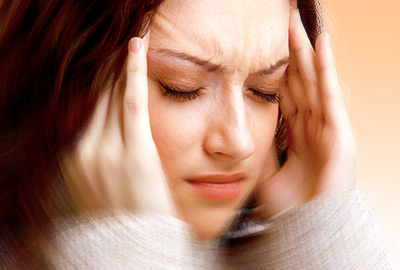Dizziness is a common symptom of menopause. Many women experience bouts of lightheadedness, disorientation, and loss of balance. The episodes are usually brought on by standing up too quickly, not eating properly, or dehydration. Although typically lasting for only a moment, they can be disruptive and concerning. Fortunately, there are simple techniques to prevent and control dizziness.
Stay Hydrated
Ensuring that your body has enough water is crucial. Many episodes of dizziness are a result of dehydration. Drinking the equivalent of eight glasses of water a day will help prevent feelings of dizziness and keep you healthy.
Check Salt Intake
If you are upping your water consumption, you may need to increase your salt intake to balance it out. Hyponatremia, or low salt intake, can result in dizziness if it continues over an extended period of time. Many people won't need to increase their salt intake, but those who frequently consume low-sodium products should make sure that they are consuming around 2,300 mg of sodium daily or otherwise following their doctor's guideline.
Maintain Energy Levels
Sleeping at least seven to eight hours every night helps you feel well-rested and maintain energy throughout the day. Lifestyle changes such as resting more will help prevent dizziness and many other symptoms of menopause.
Check Medications
If you are taking any medications, talk to your doctor about whether or not dizziness may be a side effect.
Quit Smoking
Smoking can have a number of associated health risks, one of which is dizziness. The tobacco can provoke and exacerbate dizzy spells during menopause.
Get Plenty of Fresh Air
Watching TV, reading, and staring at a computer screen for prolonged periods can cause dizziness during menopause. Try to go outside and get plenty of fresh air to balance different activities. You'll feel healthier, happier, and less dizzy.
Exercise Regularly
Maintaining a healthy body is a lifelong endeavor. One of the many components of this is maintaining a regular exercise regimen. Exercise helps regulate hormone levels and reduce stress during menopause - two of the major triggers of dizziness.
Close Your Eyes and Ears
During a dizzy spell, close your eyes and cover your ears. This will help you regain equilibrium and ease the feeling of dizziness.
Take a Warm Shower
Taking warm showers or baths can help alleviate and prevent dizziness during menopause
See Your Doctor
If natural changes to your lifestyle don't have the desired effect of preventing dizziness during menopause, then maybe it is time to find a medical expert.
Recommendations
If natural changes to your lifestyle don't have the desired effect of preventing dizziness during menopause, then it is important to talk to your physician. An underlying condition may be behind your dizziness.
To learn more about treatments for dizziness during menopause, click the following link.
Sources
- Hutchinson, Susan M.D. "The Stages of a Woman's Life: Menstruation, Pregnancy, Nursing, Perimenopause, Menopause". November 2007.
- Love, Susan M.D. Menopause and Hormone Book. New York: Three Rivers Press, 2003.
- BMJ Group. "Menopause: What is it?" Patient Leaflet. 2007.




